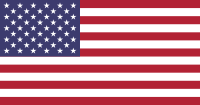
Photo from wikipedia
If it continues, deglobalization may lead not to atomization but two overlapping international orders: a liberal one (LIO) led by the United States, and an authoritarian–capitalist one (ACIO) led by… Click to show full abstract
If it continues, deglobalization may lead not to atomization but two overlapping international orders: a liberal one (LIO) led by the United States, and an authoritarian–capitalist one (ACIO) led by China. This equilibrium could emerge because a central purpose of international orders is to preserve the domestic regimes of their Great Power sponsors. The United States and China have markedly different domestic regimes, and so as China continues to grow in power and influence, tension over the content of international order should continue to grow. I borrow from Darwinian evolution the notion of ‘niche construction’: just as organisms alter phenotype selection by manipulating their natural environments, states can alter the ‘selection’ of domestic regimes by shaping their international environments. Modes of international niche construction include foreign regime promotion, interdependence, transnational interaction and multilateral institutions. The liberal democratic niche constructed by the United States and its allies after the Second World War preserved democracy for many decades. Today, China is attempting through various means to build a niche that will eliminate the liberal bias in international institutions and safeguard its own Market-Leninist regime. The resulting ACIO would select for autocracy and hence be partially separate from the LIO, which selects for liberal democracy.
Journal Title: International Affairs
Year Published: 2021
Link to full text (if available)
Share on Social Media: Sign Up to like & get
recommendations!